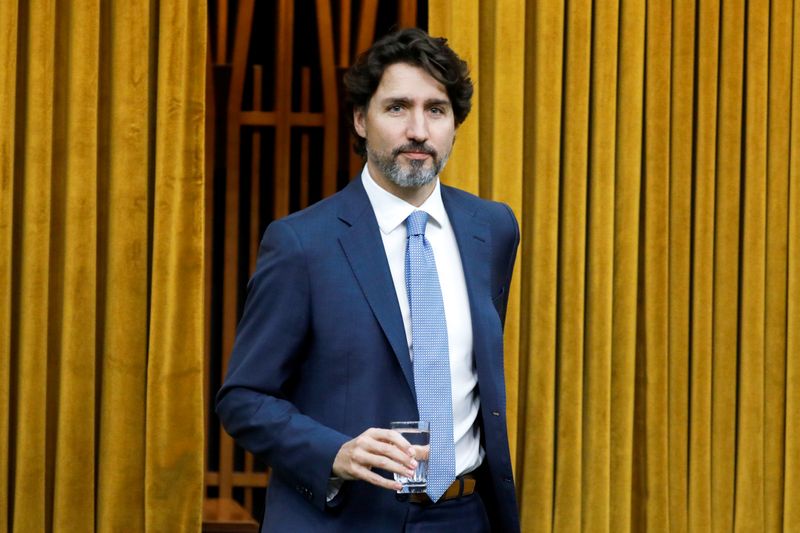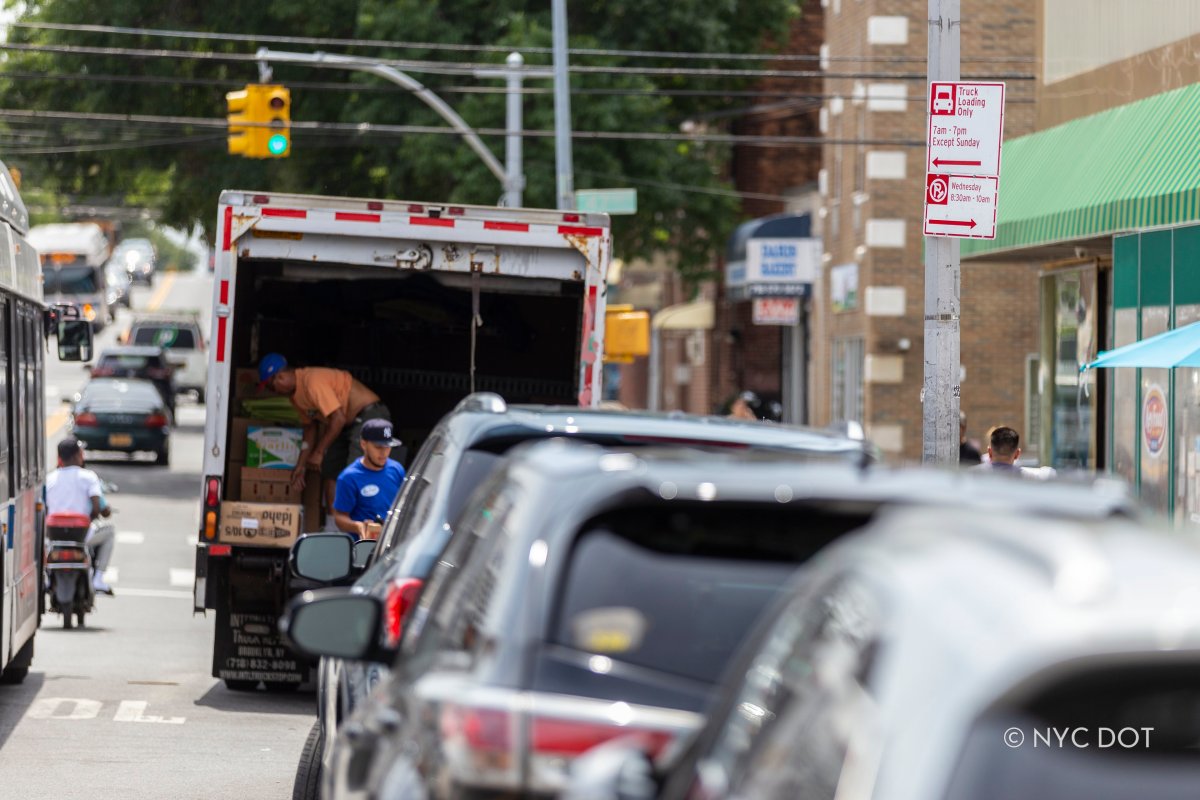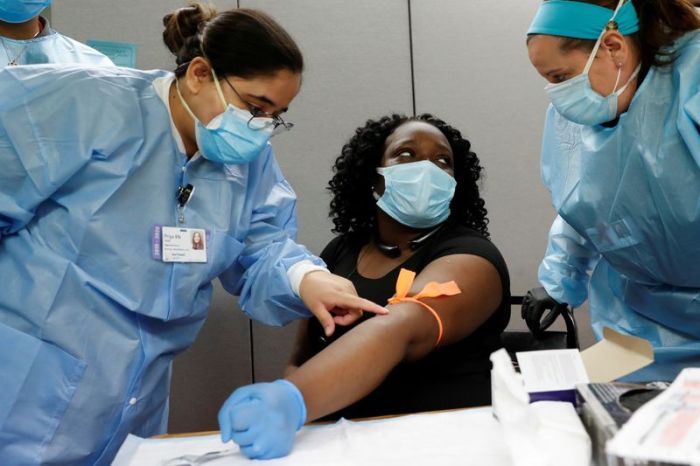OTTAWA (Reuters) – Canada will extend a costly emergency wage subsidy program until the end of August to help firms retain employees during the coronavirus outbreak, Prime Minister Justin Trudeau said on Friday.
The program is already budgeted to cost C$73 billion ($51.8 billion), or half the entire value of all the direct spending the Liberal government has unveiled to help people and firms cope with the disruption caused by major shutdowns.
“Business owners, please take confidence from this announcement – you have now some runway to catch your breath as you get restarted. So please bring back your employees,” Trudeau told a daily briefing.
Only firms which have seen a drop in revenues of 30% or more are eligible for the subsidy, a threshold that Trudeau said the government might cut to ensure more enterprises can benefit.
Ottawa is also promising unemployed Canadians up to C$2,000 a month under a separate program. The National Post this week cited internal government documents telling employees vetting claims to ignore most potential cases of cheating.
The official opposition Conservatives accuse Trudeau of turning a blind eye to fraud.
“We made the deliberate choice to get the money out the door to millions of Canadians who needed it … we will ensure that fraudsters or people who got the benefits unfairly or inappropriately will have to pay them back,” he said.
The total death toll edged up by 3% to 5,499 from Thursday, the public health agency said. The increase was one of the smallest daily advances since the crisis broke.
Many of Canada’s 10 provinces have started to slowly reopen their economies while maintaining strict rules on physical distancing and social gatherings.
“The virus won’t be gone in the next few months, perhaps in the next few years, so we have to get used to the new instructions,” Quebec premier Francois Legault told reporters.
The Pacific province of British Columbia will allow students to voluntarily return to classrooms on a part-time basis on June 1, the government announced on Friday, with the intention to return all students to classrooms full-time in September.
Canadian home sales fell by a record 56.8% in April from the previous month as lockdowns pushed buyers and sellers to the sidelines, official data showed.
($1=1.4095 Canadian dollars)
(Additional reporting by Moira Warburton and Fergal Smith in Toronto; Editing by Chris Reese and Andrea Ricci)























